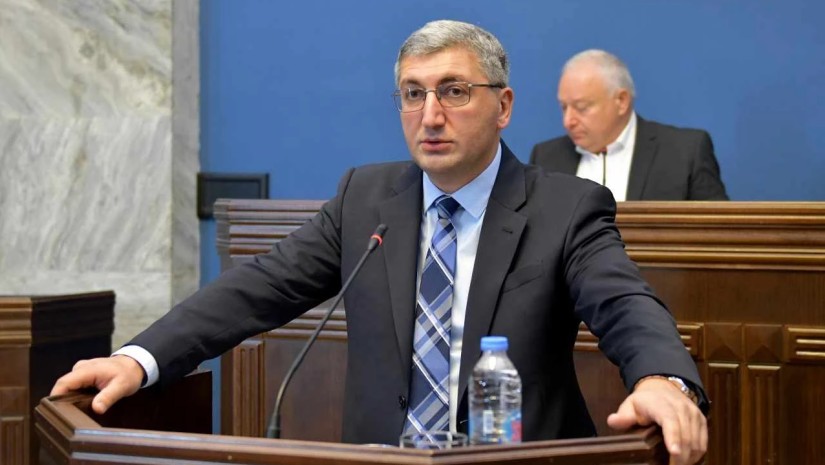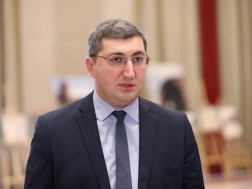Deputy Minister of Finance Giorgi Kakauridze declares, that having a program with the International Monetary Fund (IMF) is not the GD government's ultimate goal. According to Kakauridze, the GD government does not consider the IMF programs even in the debt component, excluding the pandemic period. However, Kakauridze says that the government does not rule out starting a new program with the IMF if there is an agreement on the reforms supported by the program.
In addition, according to Giorgi Kakauridze, the government will have negotiations with the Fund in April. Kakauridze also notes that the government has fulfilled the main objectives of the previous IMF program, which included reducing the state deficit and debt benchmark.
"Having a program with the IMF is not our ultimate goal. We have had communication on this issue and will have further communication. A meeting of the IMF and the World Bank will be held in April and we must agree on certain reforms. We do not need a loan from the IMF, excluding the pandemic period.
We had other programs without debt and despite the implementation of all components, we did not take a loan from the IMF. We can have a similar program in the future. We simply should use this year to agree on a specific program, since the reforms that were outlined in the previous program in the fiscal part and in the macroeconomic governance part have largely been implemented.
The main tasks that were in the previous program, including the reduction of the budget deficit and debt, are probably clear to everyone because the deficit was reduced at a much faster pace than was provided in the program.
Perhaps if we start, there will be a new program, because the goals of that program have been achieved and accordingly I do not think that continuing that program has much meaning.
As always, we have the reforms on which these programs are built. Accordingly, we will analyze and compile a list of reforms that are in line with the IMF, consult with them on which reform should go in which direction, and after that, a final agreement on the program should be reached.
I think that there is a readiness on their part and it is a matter of agreeing on the reforms. When the fourth review comes in the summer, it will reveal exactly what the future program can be focused on," Giorgi Kakauridze told bm.ge.
The three-year $289 million Stand-By Arrangement (SBA), agreed June 2022, has been on hold since June 2023 after a push to amend legislation to change the management structure at the central bank raised questions over its independence. SBAs provide short-term financial assistance to countries facing balance of payments problems.
The IMF-supported program originally included a three-year stand-by arrangement with a loan of $289 million. After the completion of the first tranche of $40 million, Georgia was due to receive the second tranche in 2023, but the IMF postponed the submission and Board approval of the second review of Georgia’s Stand-by Arrangement /SBA, stating that the delay in Board approval was “partly due to disagreement over a change in the NBG’s management structure”.
As for the change in NBG’s management structure, the changes went through after Parliament expedited the adoption of draft amendments to the Organic Law on the National Bank of Georgia on February 9, 2023. However, President Salome Zourabichvili vetoed the amendments on February 23, citing concerns that they might undermine the Bank’s independence. On June 20, the Parliament overrode the President’s veto and approved the amendments. Consequently, Natia Turnava was elected the First Vice-President of the National Bank of Georgia (NBG) by the NBG’s Board of Directors on June 22, 2023.























